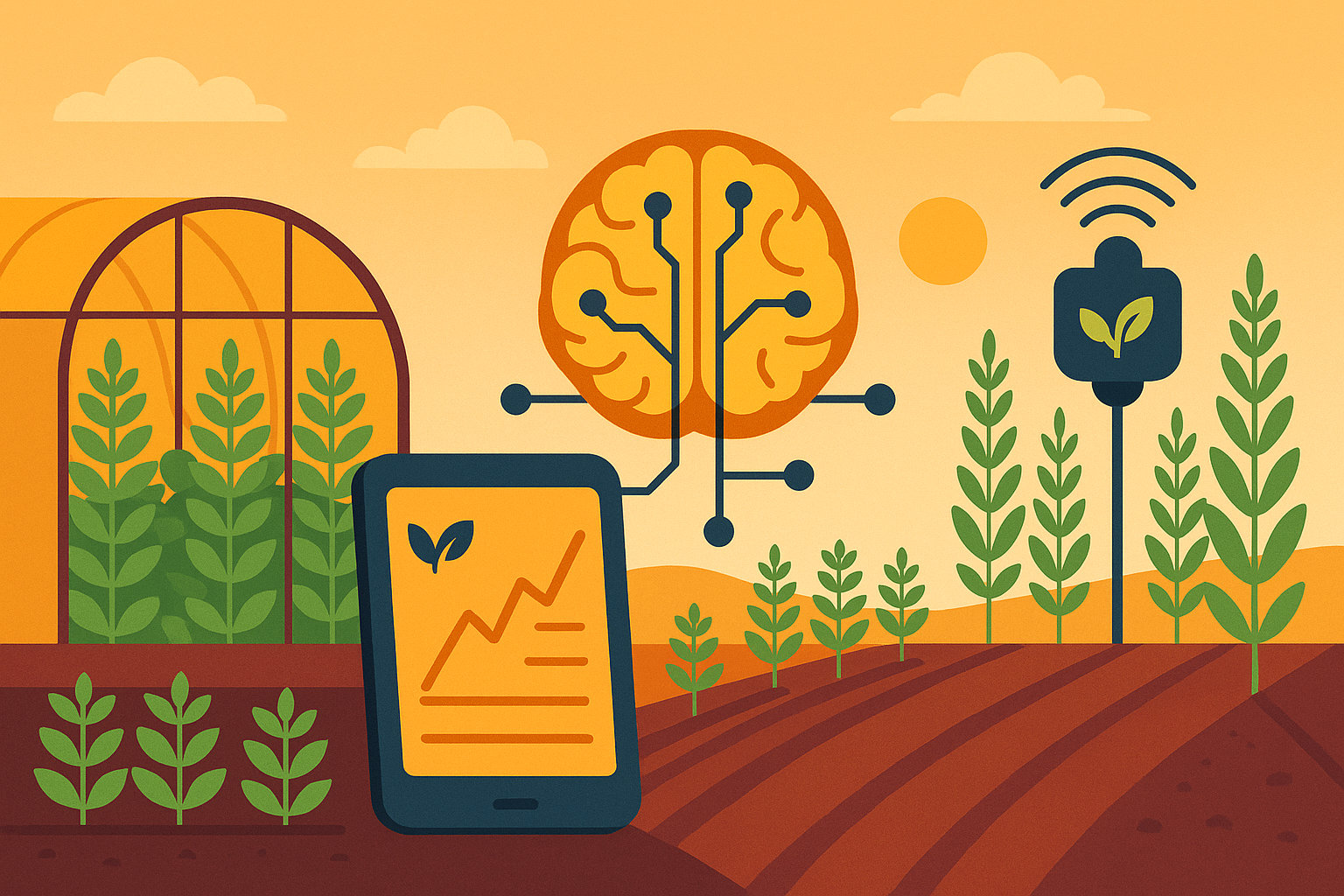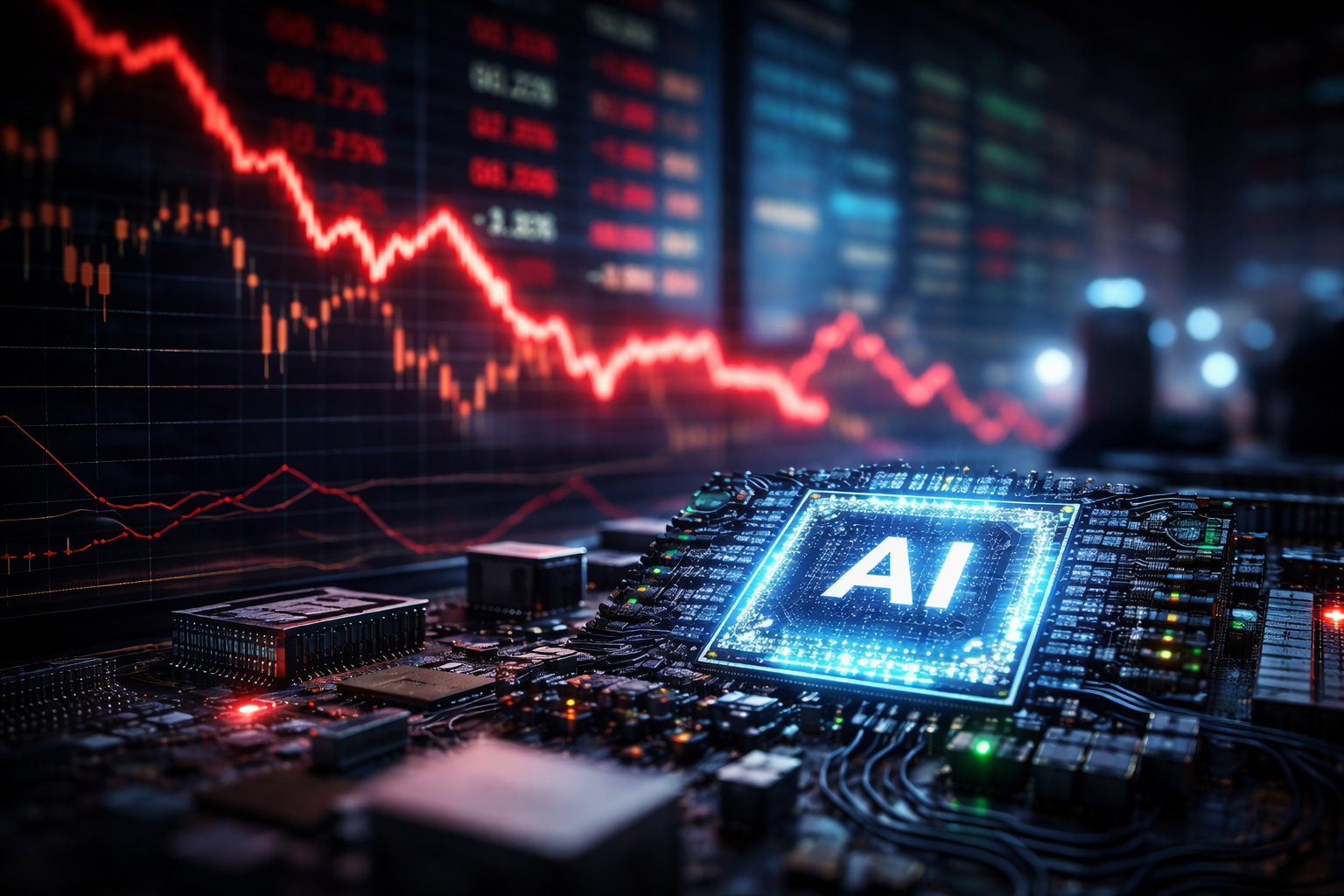AI Meets Agriculture: Investors Look to Smart Farming for the Next Big Disruption
In a market increasingly driven by technological innovation, one emerging industry is catching the sharp eye of forward-thinking investors: precision agriculture. On May 7, 2025, UK-based agritech startup Gardin announced a $4.5 million Seed 2 funding round to accelerate its AI-powered photosynthesis sensing platform. Backed by key European climate-tech investors, this funding signals growing interest in AI-driven solutions designed to tackle global food insecurity, rising input costs, and sustainability concerns.
As the global population marches toward 10 billion by 2050, and with arable land shrinking due to climate pressures, investors are seeking smarter ways to feed the planet. Gardin’s novel approach may just offer a glimpse into the future of farming.
Why This Matters for Investors
The technology developed by Gardin uses advanced optical sensors combined with AI algorithms to monitor the photosynthetic efficiency of crops in real time. This enables greenhouse and vertical farm operators to optimize conditions instantly, reduce waste, and increase yields without expanding farmland.
According to The Malaysian Reserve, the platform is already being tested with large-scale commercial growers across Europe and has demonstrated measurable results in improving resource use efficiency.
With the global precision agriculture market projected to reach $18.5 billion by 2030 (Statista, 2024), Gardin’s funding success highlights both the growing investor appetite and the technology’s proven traction in real-world environments.
Breaking Down the Investment: Who’s Backing Gardin?
The $4.5M round was led by key European VC firms specializing in climate and agtech, though exact names were not publicly disclosed. Seed 2 financing typically indicates a company is shifting from early research to commercial scaling—a sweet spot for investors looking for both risk-adjusted growth and a clear path to revenue.
“Precision agriculture is no longer experimental. It’s becoming essential infrastructure for the future of food production,” says Dr. Emily Hartwell, senior analyst at AgFutures Capital. “Startups like Gardin are proving that AI can deliver tangible, not just theoretical, agricultural efficiency.”
Future Trends to Watch: AgriTech and AI Convergence
The fusion of AI and agriculture—sometimes dubbed “AgriAI”—is drawing increasing capital from both tech and sustainability funds. Key emerging trends include:
- AI-driven crop analytics: Startups are using machine learning to detect diseases, optimize fertilization, and predict harvest times with increasing accuracy.
- Autonomous farming systems: Robots, drones, and self-driving tractors integrated with AI are reducing labor costs and improving consistency.
- Climate-resilient farming: AI is helping farmers adapt to unpredictable weather patterns through precision irrigation and adaptive cultivation methods.
According to PitchBook’s Q1 2025 AgTech Report, funding in AI-focused agriculture startups rose 27% YoY globally, with Europe leading the growth.
Key Investment Insight
The Gardin funding round underscores a key strategic pivot in venture and private equity: moving from generalist agtech to highly specialized AI-powered platforms with demonstrable ROI. Investors should keep a close watch on:
- Mid-stage agtech firms moving from pilot to commercial scale.
- Partnerships between AI startups and large food producers or agricultural equipment manufacturers.
- Regions prioritizing agricultural self-sufficiency amid supply chain disruptions.
With scalable, data-rich platforms like Gardin’s entering the mainstream, the future of farming is shifting rapidly—and so are the investment opportunities.
Stay informed on the industries transforming our future. Follow MoneyNews.Today for daily investor intelligence, trend analysis, and market-moving news that keeps you one step ahead.





